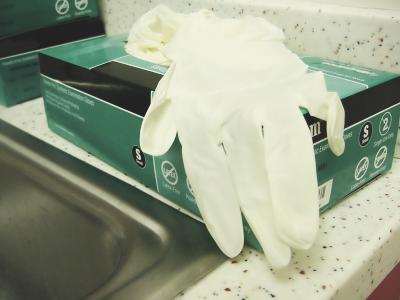What is 'golden blood' that less than 0.01% of the population has?

There are various classification methods for blood types, including the ABO blood type , which is widely known in Japan and is classified into four types: 'A,' 'B,' 'O,' and 'AB,' and the Rh blood type, which is classified by the Rh factor. To do. Among them, among the hundreds of blood types that exist, there is a phantom blood type, commonly known as ` `golden blood ,'' which is extremely valuable worldwide and exists in less than 1 in 10,000 people. Masu.
The man with the golden blood | Mosaic
http://mosaicscience.com/story/man-golden-blood

Take a Tour of Britain's Eerily Beautiful 'Golden Blood' Factory - ABC News
http://abcnews.go.com/Health/tour-britains-eerily-beautiful-golden-blood-factory/story?id=27023089

Red blood cells play the role of transporting oxygen to tissues throughout the body. If you lose a large amount of blood due to an accident or surgery, your body's ability to carry oxygen will decrease, necessitating a blood transfusion. If all humans had the same blood type, blood transfusions would be very easy, but in reality there are many different blood types.
There are up to 342 types of antigens on the surface of human red blood cells, and the body produces special proteins called antibodies in response to these antigens. In addition, the type of antigens present on the surface of red blood cells is an important factor in determining a person's blood type.
Among the 342 types of antigens, approximately 160 blood type antigens are highly prevalent and exist in the blood of most humans. If you lack any of these antigens, you would have a different blood type than 99% of the world's population, and if you had no antigens on the surface of your red blood cells, less than 0.01% of the population would have a different blood type. This means that it is a phantom blood type that only people have.
If you receive a transfusion of blood that is `` positive '' for your blood type, your own antibodies will react with the other person's blood, causing a rejection reaction by your immune system and, in the worst case scenario, death. That's why ``blood that has no antigens'', that is, blood that is negative for all types of blood, is extremely rare and medically important blood.

Forty years ago, Thomas, then a 10-year-old child, was brought to the University Hospital in Geneva. Thomas was suffering from an infectious disease, and when his blood was examined, it was discovered that there were no antigens to determine his blood type. There are actually 342 types of blood type antigens, but in most cases, the majority of blood type antigens are grouped together into one group, and the Rh blood type classifies these antigens into 61 types.
However, all Rh antigens were not present in Thomas's blood. Dr. Mari Jose of Geneva University Hospital at the time could not believe this at all and asked laboratories in Amsterdam and Paris to analyze Tomás's blood. It turns out that it was 'Rh null'. As of 2010, 43 people around the world have been confirmed to have the same 'Rh null' as Thomas.

Blood types are inherited within families, and ``Rh null'' is also said to be a blood type that is passed down to the next generation. Therefore, researchers also investigated the blood types of Tomas' relatives, and the results revealed that Tomas's 'Rh null' type appeared due to a complete mutation, and it is not normal. It was something that was born with a probability that was impossible to obtain.
``Rh null'' blood, which can be transfused to patients of all blood types, is ``golden blood,'' says Thierry Peillard, director of the National Institute of Immunology and Haematology in Paris. Currently, there are over 40 people with Rh null confirmed around the world, but among them, 6 people living in Brazil, Japan, China, the United States, and Ireland, including Tomas, are willing to receive blood transfusions. It seems that there are only people.
A laboratory called the International Blood Group Reference Laboratory (IBGRL) in the United Kingdom is where such globally valuable 'golden blood' is stored. Photographer Greg White, who took photos inside the laboratory, commented, ``It was my first time to see so much blood moving around, and it was a little creepy.''

When entering the IBGRL, you first put on a blue surgical gown, special shoes, and a hairnet in a gray room, and pass through a dust-free room and a sterile room where blood collected from all over England is stored. I go into the room. Also, at IBGRL, 'golden blood', which has less than 0.01% of the population, is processed and stored completely separately so that it does not mix with other blood types.

In addition, when hospitals in the UK receive blood transfusion packs from IBGRL, they will pay $ 200 (approximately 24,000 yen) per pack regardless of blood type, and when transporting blood transfusion packs outside the UK. The price will be determined through negotiation between the destination hospital and IBGRL.
Related Posts:
in Science, , Posted by logu_ii







